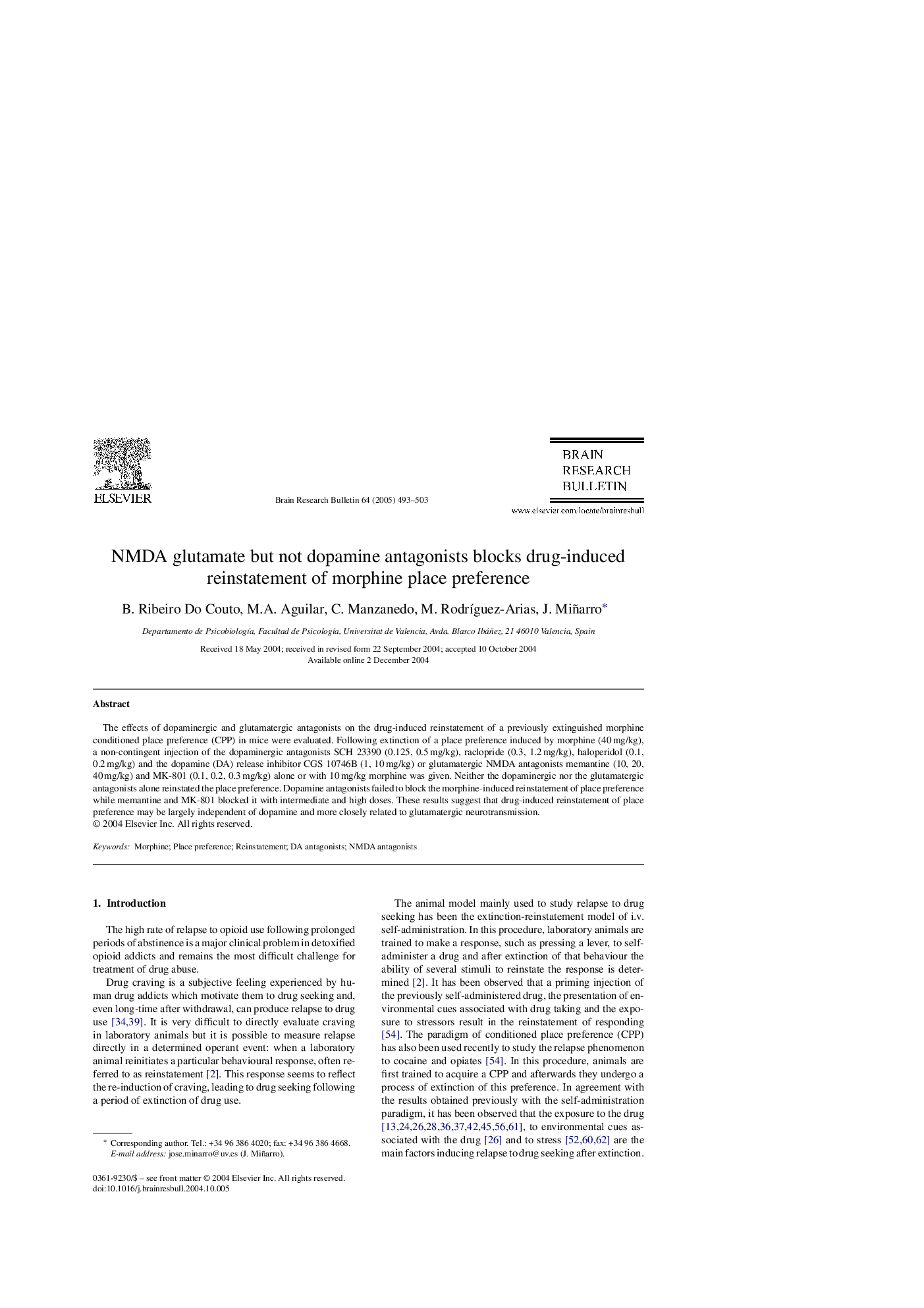| Article ID | Journal | Published Year | Pages | File Type |
|---|---|---|---|---|
| 9409590 | Brain Research Bulletin | 2005 | 11 Pages |
Abstract
The effects of dopaminergic and glutamatergic antagonists on the drug-induced reinstatement of a previously extinguished morphine conditioned place preference (CPP) in mice were evaluated. Following extinction of a place preference induced by morphine (40Â mg/kg), a non-contingent injection of the dopaminergic antagonists SCH 23390 (0.125, 0.5Â mg/kg), raclopride (0.3, 1.2Â mg/kg), haloperidol (0.1, 0.2Â mg/kg) and the dopamine (DA) release inhibitor CGS 10746B (1, 10Â mg/kg) or glutamatergic NMDA antagonists memantine (10, 20, 40Â mg/kg) and MK-801 (0.1, 0.2, 0.3Â mg/kg) alone or with 10Â mg/kg morphine was given. Neither the dopaminergic nor the glutamatergic antagonists alone reinstated the place preference. Dopamine antagonists failed to block the morphine-induced reinstatement of place preference while memantine and MK-801 blocked it with intermediate and high doses. These results suggest that drug-induced reinstatement of place preference may be largely independent of dopamine and more closely related to glutamatergic neurotransmission.
Related Topics
Life Sciences
Neuroscience
Cellular and Molecular Neuroscience
Authors
B. Ribeiro Do Couto, M.A. Aguilar, C. Manzanedo, M. RodrÃguez-Arias, J. Miñarro,
